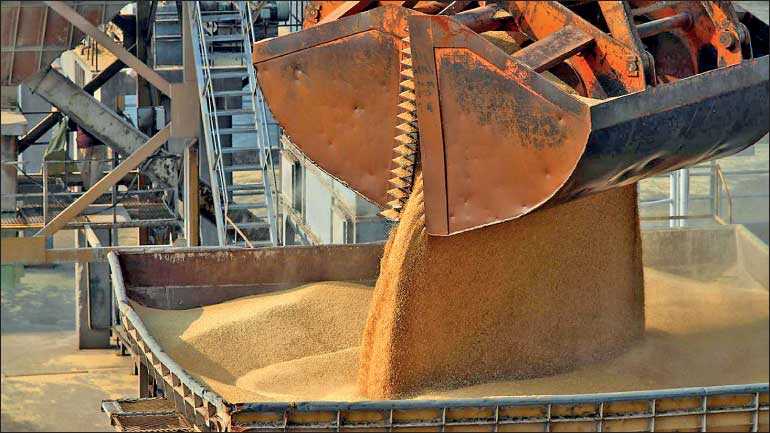Wednesday Feb 25, 2026
Wednesday Feb 25, 2026
Wednesday, 20 May 2020 00:17 - - {{hitsCtrl.values.hits}}

Imported barley is transported from a cargo ship at the port of Nantong, Jiangsu province, China - Reuters
SYDNEY (Reuters): China effectively banned Australian barley imports after concluding Canberra’s water market was a subsidy for growers, documents showed yesterday, a position Australian Government sources described as ludicrous.
Australia said it was considering an appeal to the World Trade Organization (WTO) as it tries to dampen fears that China is launching a trade war in retaliation for Australia’s calls for an investigation into the origin of the novel coronavirus.
“There is no trade war – everyone needs to take a deep breath and a cold shower,” Australian Agriculture Minister David Littleproud told reporters in Canberra.
Littleproud is one of two Ministers who has tried unsuccessfully to contact their Chinese counterparts to smooth escalating tensions over the trade of barley and beef to Australia’s largest trading partner.
China said on Monday it would apply an 80.5% tariff on Australian barley imports for the next five years, a move expected to all but halt a billion-dollar trade.
Beijing published its justification in which China concluded Australia’s Murray Darling Plan – a scheme to improve the wellbeing of an ecologically vital river system – provided a subsidy for Australian growers.
Under the plan, Australia buys water rights from irrigators to improve the health of the basin, an area twice the size of Spain and home to 40% of Australia’s agricultural output.
“Using the Murray Darling Basin Plan as justification is frankly absurd. It buys water from irrigators, 99% of whom do not grow barley,” an Australian Government source said, requesting anonymity because he was not authorised to talk about the matter.
“Even worse is the scheme impacts the east coast when nearly all Australian barley sold to China comes from the west.”
A second Australian Government official said a WTO appeal would take at least two years, and risked escalating trade tensions with China just as Australia is facing its first recession in three decades because of the impact of COVID-19.
“How can we not go to the WTO? Their justification has so many holes, I’m sure we will win and we have duty to the farmers, but at what cost?” said the second Government source, who declined to be named due to the sensitivity of issue.
Western Australia State Agriculture Minister Alannah MacTiernan said growers in her electorate would lose about A$ 200 million as a result of China’s action.
Growers could be forced to sell their premium barley – often used for making beer – to the Middle East for livestock feed at a heavy discounts, raising pressure on the federal Government to refer the matter to the WTO.
China has committed to increase its purchases of US agriculture under a phase one trade agreement with Washington, and US growers of corn and sorghum could benefit from the Australian barley ban.
“We call on the Australian Government to support Australia’s farmers and exporters... and immediately pursue the WTO Dispute Settlement process to the fullest extent possible,” Australia’s grain industry body, GrainGrowers, said in a statement.
China was Australia’s largest barley market, buying half the country’s barley exports in a trade worth about A$ 917 million ($ 600 million) a year.
Ignited by a comprehensive free trade deal, two-way trade between Australia and China has grown annually to be worth A$ 180 billion ($ 124 billion). China’s growth has propelled demand for Australian agricultural goods, services such as tourism and education, and natural resources like iron ore.